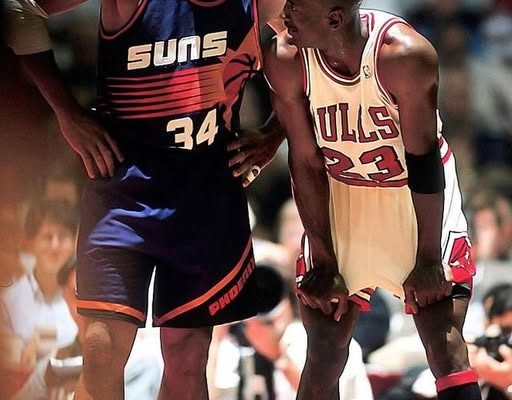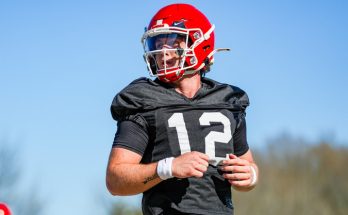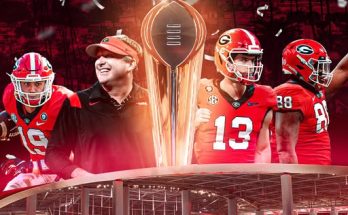The 1992-93 NBA season was one of the most compelling campaigns in league history, filled with elite talent, memorable moments, and storylines that have been told and retold for decades. But few arcs captured the imagination of fans quite like Charles Barkley’s first year with the Phoenix Suns. Coming off several strong but ultimately frustrating seasons in Philadelphia, Barkley arrived in the desert with a chip on his shoulder and something to prove. His relationship with the 76ers had soured, and the belief around the league was that while he was an incredible talent, his time to truly contend might have already passed him by. Barkley was determined to prove otherwise.
From the moment he joined the Suns, the team was electric. Under head coach Paul Westphal and with veteran front-office support from Cotton Fitzsimmons, Phoenix became the best regular-season squad in the league. They posted a 62-20 record, the best in the NBA, and Barkley played at an otherworldly level. His combination of brute strength, surprising quickness, rebounding dominance, and perimeter skill made him nearly unguardable. Night after night, he was the heartbeat of the Suns’ success. It was no surprise when he was named the NBA’s Most Valuable Player, finally breaking the stranglehold that Michael Jordan had on the award in recent years.
For Barkley, this season felt like fate. Not just because he was winning, but because he truly believed he was the best basketball player alive. In his mind, Jordan wasn’t ahead of him—he simply had better teams in Chicago. Barkley recalled years later that upon arriving in Phoenix, he told Fitzsimmons, “I’m the best basketball player in the world. We’re going to the Finals.” Fitzsimmons famously reminded him, “Well, Michael’s going to be there too.” Barkley’s reply was unwavering: “I think I’m better than Michael Jordan.” That belief drove him all season long.
When the playoffs began, Phoenix looked every bit the powerhouse they had been in the regular season. The journey wasn’t without obstacles—they fell behind 0-2 to the Lakers in the first round before storming back to win three straight, and they faced tough challenges in later rounds from the Spurs and SuperSonics—but the Suns emerged as Western Conference champions. Barkley was sensational, posting huge scoring and rebounding numbers while also serving as the emotional leader of the team. For the first time in his career, he stood just four wins away from the NBA championship he had long chased.
But standing in his way were the Chicago Bulls, a team riding the momentum of back-to-back championships and led by the most iconic player in basketball history. Michael Jordan was at the peak of his powers. While the Bulls had endured some fatigue over the course of their run, they had the championship DNA and the ability to rise in the biggest moments. For Jordan, the Finals were not just about defending a title—they were about cementing his legacy with a three-peat.
Game 1 in Phoenix was a harsh wake-up call for the Suns. The Bulls came in and stole home court with a 100-92 victory, setting the tone for the series. Barkley was good, but not dominant, and suddenly the pressure was on. Game 2 became a must-win. The stakes were enormous: a loss would send Phoenix to Chicago down 0-2, a deficit that almost no team in NBA history had overcome in the Finals.
Barkley rose to the occasion with one of the best games of his career. He scored 42 points, ripped down 13 rebounds, and dished out 4 assists in a performance that showcased everything that had made him the league’s MVP. He attacked the basket with ferocity, hit jump shots with confidence, and controlled the glass against a tough Bulls frontline. Yet, on the other side, Jordan was equally relentless. In one of the most remarkable head-to-head displays in Finals history, Jordan matched Barkley almost point for point—42 points, 12 rebounds, and 9 assists. It was a battle of titans, but the Bulls once again had the edge in the clutch moments. Chicago eked out a 111-108 win, taking a 2-0 series lead and effectively seizing control of the Finals.
For Barkley, that loss cut deep. He had poured every ounce of energy into that game, played at his absolute peak, and still came up short. There is a particular type of heartbreak in sports that comes when an athlete gives their very best and still finds it’s not enough. That night, the weight of the moment hit him harder than any defender ever could.
In the years that followed, Barkley shared the story of what happened when he returned home after Game 2. His young daughter was in tears, telling him, “Dad, you guys lost again.” He tried to comfort her, but he also knew he had to face a truth he had never admitted before. “Baby,” he told her, “I think Michael Jordan is better than me.” She was shocked—her father had never said such a thing. He told her, “I’ve never felt that before.” For a man as supremely confident as Barkley, the realization was profound.
The series moved to Chicago, where the Suns fought valiantly. They even won an epic triple-overtime Game 3 at the United Center, a game still remembered as one of the greatest in Finals history. But ultimately, the Bulls closed out the series in six games, with Jordan delivering yet another Finals MVP performance. Chicago completed their first three-peat, solidifying their place as one of the greatest dynasties in sports. Barkley, meanwhile, had reached the closest point to the summit he would ever see. Despite his brilliance in 1993, he never returned to the NBA Finals.
In hindsight, the 1993 Finals represented more than just a matchup between two superstar forwards—it was a symbolic passing of belief. Barkley entered that season convinced he was the best, and his MVP award seemed to validate it. But by the end, he had to confront the reality that Jordan’s combination of skill, competitiveness, and will to win placed him in a class by himself. That kind of admission didn’t diminish Barkley’s greatness; in many ways, it amplified it. It showed a level of honesty and self-awareness rare among elite athletes, especially those whose careers are defined by supreme self-belief.
The 1993 Finals also stand as one of the greatest showcases of individual brilliance in NBA history. Barkley averaged 27.3 points, 13 rebounds, and 5.5 assists over the series. Jordan, in one of his finest Finals performances, averaged an astounding 41 points per game—the highest scoring average in Finals history. Game after game, the two went toe-to-toe, pushing each other to incredible heights. It was basketball at its most compelling, a reminder of what happens when two of the best competitors of their generation meet on the sport’s biggest stage.
For Barkley, the memory of that series is bittersweet. On one hand, it was the pinnacle of his career: the MVP award, the Finals run, the unforgettable battles with Jordan. On the other hand, it was the moment he realized that even his very best was not enough to dethrone the greatest player of his era. That truth would stick with him long after his playing days were over.
And yet, Barkley’s legacy has never been solely defined by that loss. While he never won a championship, he remains one of the most beloved and respected figures in basketball history. His impact on the game, both on and off the court, is undeniable. The 1993 Finals didn’t break him—it simply clarified the hierarchy of his time.
In sports, we often talk about destiny, about the magical seasons when everything seems to align. But sometimes destiny runs headfirst into reality. For Charles Barkley, 1993 was that season—a year when he reached the absolute peak of his powers, only to find that even the summit wasn’t enough to stand above Michael Jordan. The series may have ended in defeat, but the story it told has endured for decades: the tale of a great player who believed he was the best, fought to prove it, and came away with the ultimate respect for the man who stood in his way.



